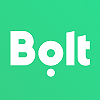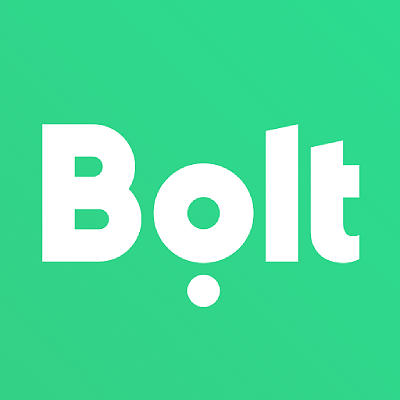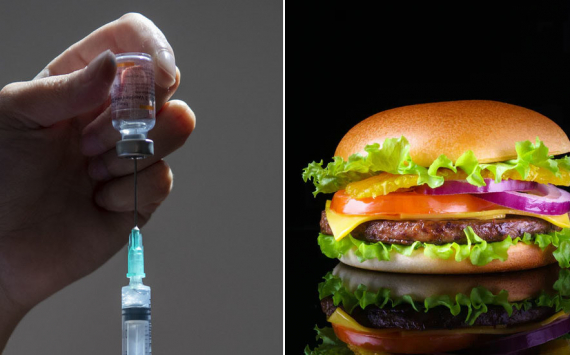Description
Bolt is an Estonian mobility company that offers vehicle for hire, micromobility, car-sharing, and food delivery services headquartered in Tallinn and operating in over 300 cities in 45 countries in Europe, Africa, Western Asia and Latin America. The company has 75 million customers globally and more than 1.5 million drivers use Bolt platform to offer rides.
History
Bolt (then called Taxify) was founded by Markus Villig (then only 19 years old, a high-school student) in 2013, with a vision to aggregate all Tallinn and Riga taxis into one platform. With €5,000 from his parents, who also helped him by doing customer support outside of their regular working hours, he hired a developer to help him launch the business, then called mTakso. The service was launched in August 2013 and in 2014 it went on to foreign shores.
In 2017, Bolt launched its services in London by acquiring a local taxi company with a licence to operate, but was forced by Transport for London to shut down its services. The company has filed a new licence application and relaunched in London in June 2019.
Following the setback in London, Bolt launched its services in Paris and Lisbon.
In September 2018, the company announced expanding into dockless electric scooters and launched them in Paris. The company also said it planned to release scooters in several other European and Australian cities where the app was already established, but would also launch in new markets where vehicle for hire services face significant regulatory roadblocks, including Germany and Spain.
In June 2019, Bolt re-launched in London with 20,000 drivers registered on the platform.
In August 2019, the company rolled out its food delivery service, Bolt Food. Bolt Food launched in Tallinn, with the plans to expand to more cities in Europe and Africa later this year.
In September 2019, Bolt announced its "Green Plan", an initiative to reduce the ecological footprint of the transportation industry and Bolt as a company. The Green Plan goals include offsetting Bolt's contribution to the CO₂ emissions of the European transportation sector by at least 5 million tonnes by 2025 and adding more green ride-types for passengers to choose from.
In March 2019, and in 2020, Bolt was ranked third in the FT 1000: Europe's Fastest Growing Companies published by the Financial Times.
In May 2021, Bolt launched a car-sharing service Bolt Drive.
On 22 June 2021, the App Drivers & Couriers Union (ADCU) in the UK called a 24-hour strike and staged a protest against Bolt at the company's West London offices. The union demanded that Bolt also observe the recent UK Supreme Court ruling against Uber and treat its drivers as workers with the right to the UK national minimum wage and holiday pay. ADCU London President Abdurzak Hadi said: “Bolt can no longer just bury its head in the sand and pretend that their drivers and our members are not entitled to the same rights as Uber drivers. This strike and protest is Bolt’s last chance to do the right thing, obey the law and respect their drivers." The union threatened legal action on worker rights if Bolt did not comply with its demands, that also included, that Bolt should increase its fares to £2 per mile, and end all unfair driver dismissals.
Financing
Prior to announcing a strategic partnership with Didi Chuxing, Bolt had raised over €2 million in investment capital from Estonian and Finnish angel investors. In August 2017, Didi Chuxing invested an undisclosed amount believed to be an "eight-figure U.S. dollar sum". A May 2018 funding round with a $175 million investment from Daimler, Didi and others led to a 1 billion dollar valuation for the company, making it a unicorn.
In January 2020, the European Investment Bank (EIB) signed a EUR 50 million venture debt facility with Bolt. The financing, supported by the European Fund for Strategic Investments (EFSI), is to boost Bolt's product development in areas where technology can improve the safety, reliability and sustainability of its services. This includes investment in existing services such as vehicle for hire and food delivery, as well as the development of new products.
In December 2020, Bolt raised €150 million from venture capital funds.
In March 2021, Bolt raised €20 million from IFC, a World Bank Group member, for further expansion in emerging markets. The company was valued at more than €2 billion after this fund raising round.
In August 2021, Bolt raised €600 million from Sequoia Capital increasing the valuation of the company to over €4 billion.
Milestones
- Became the first transportation app in the world to allow customers to pay for their trips via mobile carrier billing.
- Became the #2 travel app in South Africa, and #1 travel app in Kenya and Nigeria in 2017.
- Became larger than Uber in Africa in 2018.
- Reached 10 million customers in May 2018.
- Expanded into electric scooters in September 2018 and became the first platform integrating scooters with vehicle for hire services in one mobile app.
- Rebranded to Bolt and reached 25 million passengers in February 2019.
- Launched in London in June 2019.
- Launched in Tunis in July 2019.
- Launched Bolt Food in August 2019.
- Launched car-sharing service Bolt Drive in May 2021.
Services
Bolt operates their app, which enables people to hail rides, rent cars, electric scooters and e-bikes and order food delivery from their smartphones. The application is available for Android, iOS, and Windows Phone. Riders must choose a payment method: cash, credit card or mobile carrier billing before they can use the service. The customer requests a ride and confirms their pick-up location. Once the driver accepts the trip, the customer will be able to see the driver's name and car details. After the ride is completed both driver and the rider can rate each other.
Safety
Bolt has stressed the importance of customer safety. All drivers undergo a criminal background check and in-person training. Drivers are also required to be at least 21 years old and have had a driving licence for at least 3 years. Bolt has a zero-tolerance policy against alcohol and drug use. In Nigeria, Bolt has included an SOS button for drivers that sends real time emergency alerts to the Lagos State Emergency Response Agency. In London, an in-app SOS button links riders and drivers with the emergency services.
The drivers that work for Bolt have their own issues with the company related to safety and remuneration. Earlier this year they staged a demonstration by blocking bolt offices.
Environmental sustainability
Bolt is alleging that the company is heading towards a more environmentally sustainable model. According to EuroNews, since September 2019, Bolt rides in Europe are 100% carbon-neutral.






















